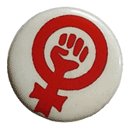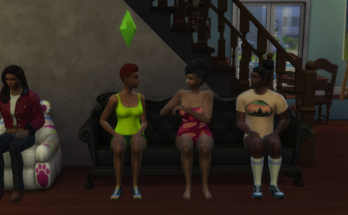by CharlottePradie
I went to a talk about Ms. Magazine a few weeks ago. I remember learning about Ms. sophomore year in my Introduction to Media Studies class. I hadn’t done the reading about the magazine, but I decided to discuss it anyway. After hearing about what the magazine was interested in and what it published, I raised my hand and said “I don’t really feel like Ms. is actually feminist.” I’m not sure why I thought that was an appropriate comment, but it felt right at the time. Someone else in the class immediately responded with all her reasons (and the article’s reasons) for why the magazine was feminist. I remember arguing with some of her assertions before slumping into my chair and remaining silent for the rest of the class time.
Of course, Ms. Magazine is the feminist magazine. Remembering this moment in my education helped me to understand the reality of “feminism”—Feminism—today. I tend to absorb new information as my own and treat it as ahistoric in my belief system—“I always knew what feminism was”—forgetting that I probably defined it very differently than I do now. In fact, I don’t think I ever gave that much thought to feminism in high school, though I had many opportunities to. Reading The Awakening, learning “The History of the 1960’s,” playing single sex sports, existing as a female in this world. All opportunities to engage with feminism, but I don’t remember ever being moved to. After all, the feminist movement was explicitly communicated to me in the context of the History of the 1960’s, a class I took senior year of high school. Feminism, a movement that took place fifty years ago…It had obviously come and gone.
But how did I miss out on a value system that I am coming to integrate into my vision of the world, a value system that I am beginning to incorporate into my identity? Of course, better late than never. But I think that the absence of a feminist discourse in my life thus far is problematic. At Spence, the girls’ school that my mom works at, a feminist discourse is built into the education system starting in Kindergarten. I respect that. Is feminism only a priority in a girls’ school, where a safe space for young women is in the mission statement?
Moving forward, I am going to make it my responsibility to become educated and educate others about feminism (thank you, Ms., for a free one-year subscription…). As a senior, I am preparing to prioritize thoughtful engagement with the world as I enter it, which means an intentional approach to language and action. I am really thankful that I have had the opportunity to learn about so many positive niches in a world that I have been a little bit scared of, and now I have to continue to cultivate knowledge of these niches in a self-directed curriculum.

